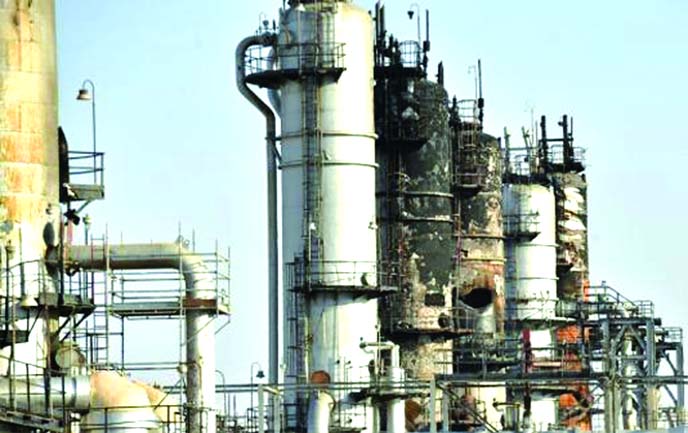
AFP, Paris :
The OPEC oil cartel saw its crude production fall in September, mostly due to production falling in Saudi Arabia following attacks on its oil infrastructure, according to its monthly oil report released on Thursday.
The Organization for the Petroleum Exporting Countries said its production fell to an average of 28.49 million barrels per day (mbd) in September, a drop of nearly 1.32 mbd, according to secondary sources.
Production by Saudi Arabia, the cartel’s biggest producer and the world’s top exporter, fell by 1.28 mbd to just over 8.56 mbd.
September 14 attacks on Saudi state-owned Aramco facilities in Abqaiq and Khurais initially halved the kingdom’s crude output and sent global energy markets into a tailspin.
Abqaiq is the world’s largest oil processing facility and Khurais is a major oil field.
The attacks were claimed by Yemen’s Huthi rebels. Saudi leads a military coalition against the Iran-backed Huthis, which have carried out dozens of cross-border drone and missile attacks on Saudi targets, including oil facilities.
Washington has concluded that the strikes were launched from Iranian soil and that cruise missiles were used. Tehran denies its involvement.
OPEC also once again trimmed its forecast for the growth in global oil demand, to 0.98 mbd from 1.02 mbd, although that was due to downward revisions to demand in the first half of the year.
The OPEC oil cartel saw its crude production fall in September, mostly due to production falling in Saudi Arabia following attacks on its oil infrastructure, according to its monthly oil report released on Thursday.
The Organization for the Petroleum Exporting Countries said its production fell to an average of 28.49 million barrels per day (mbd) in September, a drop of nearly 1.32 mbd, according to secondary sources.
Production by Saudi Arabia, the cartel’s biggest producer and the world’s top exporter, fell by 1.28 mbd to just over 8.56 mbd.
September 14 attacks on Saudi state-owned Aramco facilities in Abqaiq and Khurais initially halved the kingdom’s crude output and sent global energy markets into a tailspin.
Abqaiq is the world’s largest oil processing facility and Khurais is a major oil field.
The attacks were claimed by Yemen’s Huthi rebels. Saudi leads a military coalition against the Iran-backed Huthis, which have carried out dozens of cross-border drone and missile attacks on Saudi targets, including oil facilities.
Washington has concluded that the strikes were launched from Iranian soil and that cruise missiles were used. Tehran denies its involvement.
OPEC also once again trimmed its forecast for the growth in global oil demand, to 0.98 mbd from 1.02 mbd, although that was due to downward revisions to demand in the first half of the year.

